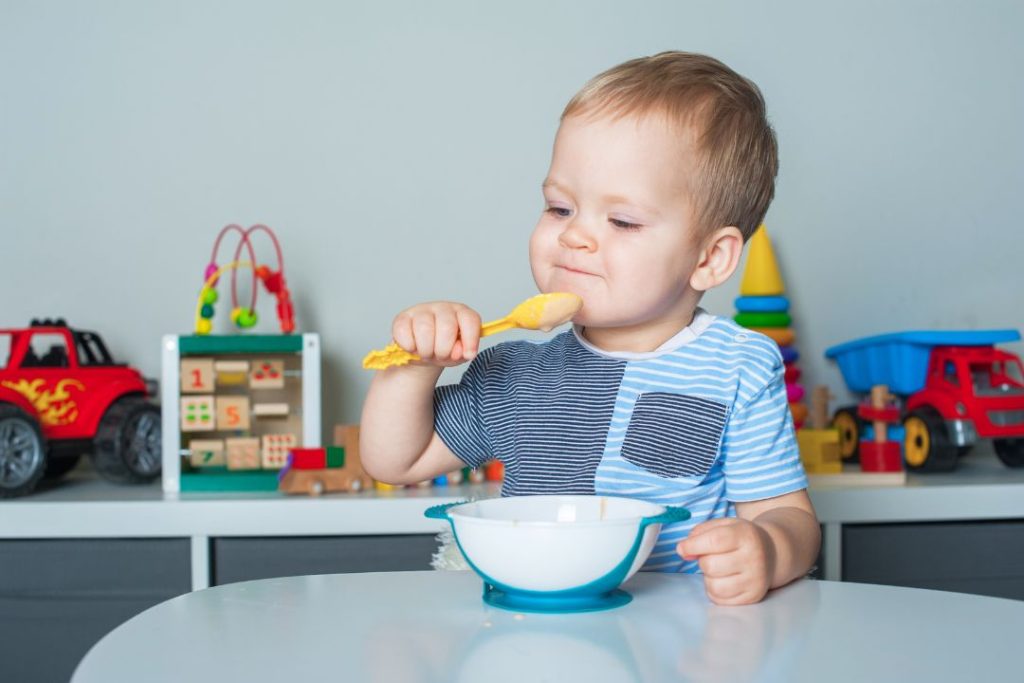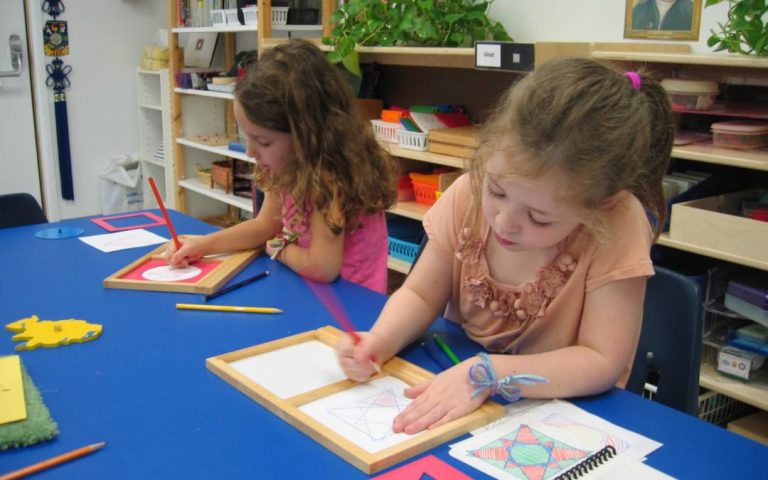What Type of Skills are Hand Washing, Self Feeding, And Simple Household Chores

Hand washing, self-feeding, and simple household chores require a fine motor, self-help, and daily living skills. These skills are essential for an individual’s independence and daily functioning.
Mastering these abilities contributes to a person’s overall well-being and enhances their quality of life. They are particularly crucial for children’s developmental milestones and adults with disabilities or injuries. We will explore the importance of these skills, how to develop them in children and adults, and the impact they have on overall health and independence.
Understanding the significance of these skills and how to effectively develop and maintain them is vital for promoting a healthy and fulfilling life. Let’s delve deeper into the significance of hand washing, self-feeding, and simple household chores in daily life.

Gaining Independence Skills
The development of independence skills is a crucial aspect of a child’s growth. Encouraging children to learn and master daily activities such as hand washing, self-feeding, and simple household chores significantly fosters their autonomy and self-sufficiency. These skills can contribute to their overall confidence and sense of accomplishment as they navigate through their formative years. Let’s delve into the importance of recognizing self-sufficiency development and how it relates to gaining independence skills.
Recognizing Self-sufficiency Development
Children progress through distinct stages of development – physically, emotionally, and cognitively. As part of this, they gradually acquire the ability to perform basic tasks independently. Hand washing, self-feeding, and simple household chores are fundamental activities that lay the groundwork for self-sufficiency. Through these tasks, children learn essential skills, such as hygiene, self-regulation, and responsibility, which contribute to their overall independence.
Importance Of Fostering Autonomy In Daily Routines
Fostering autonomy in daily routines has a profound impact on a child’s development. By gradually introducing age-appropriate tasks, parents and caregivers can instill a sense of self-reliance and capability in children. As children gain proficiency in tasks like hand washing, self-feeding, and simple household chores, they experience a tangible sense of achievement, contributing to their self-esteem and confidence. These activities also provide opportunities for learning valuable life skills and building a foundation for independent living.
Hand Washing Mastery
Proper hand washing is a vital life skill that serves as one of the first lines of defense against illness and disease from germs. Mastering the technique of hand washing is essential for maintaining good personal hygiene and preventing the spread of bacteria and viruses. In this section, we will explore the steps to effective hand washing techniques, ways to build the habit in children and adults, as well as the cognitive and motor skills involved in this crucial daily practice.
Steps To Effective Hand Washing Technique
Mastering hand washing involves following a set of essential steps to ensure thorough cleaning. Proper hand-washing techniques include:
- Wet your hands with clean, running water (warm or cold), turn off the tap, and apply soap.
- Lather your hands by rubbing them together with the soap. Be sure to lather the backs of your hands, between your fingers, and under your nails.
- Scrub your hands for at least 20 seconds. Need a timer? Hum the “Happy Birthday” song from beginning to end twice.
- Rinse your hands well under clean, running water.
- Dry your hands using a clean towel or air dry them.
Building The Habit In Children And Adults
Developing the habit of thorough hand washing is crucial for individuals of all ages. For children, parents and caregivers play a key role in cultivating this practice. This can be achieved by setting a consistent routine and providing positive reinforcement. Adults should also model good hand hygiene behaviors to reinforce the importance of hand washing.
Cognitive And Motor Skills Involved
Hand washing involves both cognitive and motor skills. The process requires understanding and following a sequence of steps, enhancing cognitive development. Additionally, the physical act of lathering, scrubbing, and rinsing strengthens fine motor skills, coordination, and dexterity.
Self Feeding Proficiency
Children develop important life skills through self-feeding, hand washing, and simple household chores. These activities enhance their independence, motor skills, and sense of responsibility from an early age. Mastering these skills is crucial for their growth and development.
Transitioning to Feeding In Children
Self-feeding proficiency in children is an important milestone that signifies their growing independence and development. Transitioning to self-feeding requires patience, encouragement, and the right tools. By providing children with the opportunity to explore and practice self-feeding, they can gain confidence and enhance their motor skills.
Adaptive Utensils And Aids For Various Ages
One way to support children in their transition to self-feeding is by providing adaptive utensils and aids suitable for their age and developmental stage. Adaptive utensils such as curved spoons, easy-grip handles, and specialized plates can help children with limited dexterity or motor control. These tools enable them to participate in mealtime more independently and comfortably, fostering a sense of accomplishment.
Coordination And Fine Motor Skills Enhancement
Enhancing coordination and fine motor skills is crucial in promoting self-feeding proficiency. Children can benefit from activities that engage their hand-eye coordination, such as stacking blocks, using playdough, or sorting objects. These activities help strengthen their grip, enhance finger dexterity, and improve their overall motor skills, making self-feeding a more manageable and enjoyable experience.
By understanding the significance of self-feeding proficiency, providing appropriate adaptive utensils, and encouraging activities that enhance coordination and fine motor skills, caregivers can support children in achieving this important developmental milestone.
Simple Household Chores Skillset
Completing simple household chores is an essential life skill for children to develop. It fosters independence, and responsibility, and helps them become contributing members of the family unit. The process of learning these tasks also aids in the development of fine and gross motor skills, hand-eye coordination, and cognitive abilities. Here we will explore age-appropriate household tasks, effective teaching methods, and the numerous benefits of early chore responsibility.
Identifying Age-appropriate Household Tasks
When assigning household chores to children, it’s crucial to consider tasks that are appropriate for their age and developmental stage. Here’s a guide to help identify age-appropriate tasks:
| Age Group | Tasks |
|---|---|
| 2-3 years |
|
| 4-5 years |
|
| 6-7 years |
|
Teaching Methods And Tools For Skill Acquisition
When teaching children how to perform household chores, it’s essential to use effective teaching methods and tools. The following are some approaches and tools for skill acquisition:
- Modeling the task first and providing clear, simple instructions
- Using visual aids, such as chore charts or diagrams
- Providing positive reinforcement and praise for their efforts
- Using child-friendly cleaning tools and equipment
Benefits Of Early Chore Responsibility
Introducing children to household chores at an early age offers numerous benefits:
- Builds responsibility and a sense of accomplishment
- Promotes independence and self-reliance
- Teaches valuable life skills for adulthood
- Fosters a sense of contribution to the family unit
By introducing children to age-appropriate household chores and using effective teaching methods, parents can instill valuable life skills and a strong work ethic in their children from a young age.
Interlinking Domestic Skills Development
How Hand Washing, Self Feeding, And Chores Interrelate
Each of these daily tasks plays an integral role in the overall development of a child’s life. Hand washing teaches hygiene and responsibility, self-feeding instills self-sufficiency and fine motor skills, while simple household chores foster independence and contribute to a sense of contribution within the family unit.
Creating A Cohesive Routine Incorporating All Skills
When incorporated together, these skills form a cohesive routine that aids in the holistic development of a child. By establishing a structured daily regime where handwashing, self-feeding, and chores are integrated, children learn the importance of personal and environmental hygiene, as well as the value of contributing to household tasks.
Long-term Impacts On Independence And Confidence
The long-term impact of mastering these skills is evident in developing independence and confidence. Children who have been taught and encouraged to perform these tasks develop a sense of self-reliance, boosting their confidence and nurturing their ability to take on responsibilities as they grow.
Advancing Beyond Basics
Advancing beyond the basics of hand washing, self-feeding, and simple household chores involves moving from fundamental skills to more complex tasks. It also involves a continual emphasis on improvement and fostering a mindset of self-reliance that extends beyond the immediate tasks at hand.
Progressing From Simple To Complex Tasks
As individuals become proficient in basic tasks such as hand washing, self-feeding, and simple household chores, they can progress to more complex tasks. This progression may involve learning to prepare simple meals, managing personal finances, or even engaging in home maintenance activities.
Encouraging Continual Skill Improvement
Encouraging continual skill improvement involves setting new challenges and goals to expand one’s capabilities. Whether it’s learning new cooking techniques, developing time management skills, or acquiring advanced cleaning and organization methods, the focus is on constant growth and development.
Fostering A Lifelong Mindset For Self-reliance
The ultimate goal of advancing beyond basics is to foster a lifelong mindset for self-reliance. This means instilling a belief in one’s ability to handle a wide range of tasks and challenges, empowering individuals to actively seek out opportunities for personal growth and independence.
Frequently Asked Questions For What Type Of Skills Are Hand Washing, Self Feeding, And Simple Household Chores
What Are The Benefits Of Hand Washing?
Regular hand washing helps prevent the spread of germs and infections, keeping you and your family healthy. It’s a simple yet effective way to maintain personal hygiene and reduce the risk of illness.
At What Age Should A Child Start Self-feeding?
Children can start self-feeding around 6-7 months when they show interest and motor skills development. Encouraging self-feeding enhances their independence and fine motor skills, preparing them for future mealtime independence.
Why Are Simple Household Chores Important For Kids?
Involving kids in simple household chores teaches them responsibility, time management, and essential life skills. It also fosters a sense of contribution within the family, boosting their self-esteem and self-reliance.
Conclusion
It’s crucial to understand the significance of developing hand washing, self-feeding, and simple household chore skills for children. These skills not only contribute to their independence but also promote good hygiene and responsibility. By encouraging and nurturing these abilities, parents can help their children become more self-sufficient and confident individuals in the future.

Emily specializes in integrating arts into early childhood education. She believes in fostering creativity and imagination through music, art, and drama activities.






